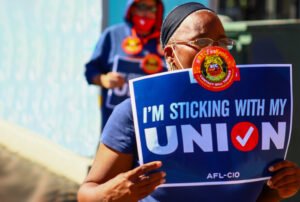July 17, 2012; Source: Broadcasting & Cable
In the ongoing battle for greater transparency in political campaign spending, the Federal Communications Commission (FCC) recently unveiled a new online database tool it has set up to make TV station public files, including online political files, more publicly accessible nationwide. Despite some technical hiccups, on Tuesday, the FCC demonstrated the platform, which has been developed in connection with the agency’s recent order requiring television broadcast stations to post their public inspection files online in a central, FCC-hosted database.
Sign up for our free newsletters
Subscribe to NPQ's newsletters to have our top stories delivered directly to your inbox.
By signing up, you agree to our privacy policy and terms of use, and to receive messages from NPQ and our partners.
Broadcasters have kept “public files” on paper since 1965 as part of their long-standing obligation to disclose community-relevant information for public review. The public has been able to access this information only by visiting a broadcast station and asking to see the public file. This means a reporter investigating political campaign TV ad spending by a super PAC across several markets would previously need to visit each station in person to request to view the files. Beginning August 2nd, the new rules require that stations affiliated with ABC, NBC, CBS, and Fox serving the top 50 markets upload political file documents to the FCC database.
The National Association of Broadcasters (NAB), the trade organization advocacy arm of U.S. broadcasters, has been fighting the rule. NAB first mounted an aggressive lobbying effort before the FCC vote in April, then sued in May after the rule was passed and, more recently, it filed an emergency request for a stay of the order. Broadcasters contend that the new online filing requirements will harm them by compelling television stations to disclose prices for specific advertisements.
Reacting to the broadcasters’ filing, an FCC spokesperson said, “The public file rules are a common-sense update by the FCC to move from paper to online access to public information in the digital age. The rules are consistent with Congress’s directive to ensure public availability while providing cost-savings for broadcasters.” –John Hoffman













